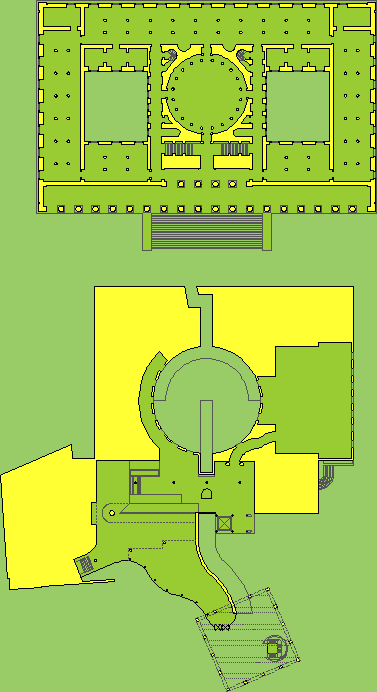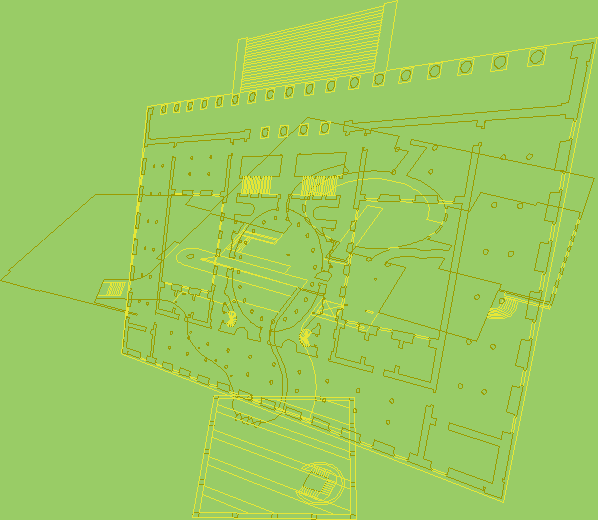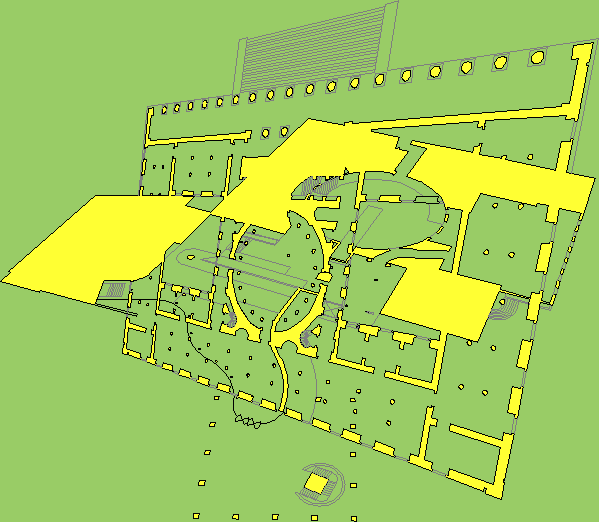2001.08.10
Ludi Ichnographici

| |
Ottopian House II, also know as Lauf Haus der Kunst, begins with two museum (of art) plans, Karl F. Schinkel's Altes Museum and Stirling and Wilford's Museum for Nordrhine Westfalen. The Museum for Nordrhine Westfalen, although unexecuted, is a clear, albeit metabolic, reenactment of the Altes Museum. In turn, Lauf Haus der Kunst manifests a further metabolic reenactment of both museums.
top: Karl Freidrich Schinkel, Altes Museum, 1824-30, Berlin. The Altes Museum, along with the British Museum, is the forerunner of the museum typology of architecture.
bottom: James Stirling, Michael Wilford & Associates, Museum for Nordrhine Westfalen, 1975 (project), Düsseldorf. The Museum for Nordrhine Westfalen, along with the Staatsgalerie at Stuttgart are clearly museums inspired by the Altes Museum.
|

|
Ottopian House II is derived from the superimposition of two perspectivally skewed plans of the Altes Museum and the Museum for Nordrhine Westfalen respectively. This duality is indeed intentionally duplicitous, while at the same time manifesting commentary on artifice, ingenuity, facility, and even trickery--appropriate appropriations for a virtual house of art.
| |
Stephen Lauf, Ottopian House II, 1999- (project), superimposition of the Altes Museum and and Museum for Nordrhine Westfalen.
|
| |
2001.08.12
Ludi Ichnographici
With the plan of plans fully merged, the next step is to transform the large areas of poche into useable spaces, hence the ample exhibition galleries. Although this is still (partially) a private residence, the exhibition spaces are designed for public use.
| |
Stephen Lauf, Ottopian House II, 1999 (project), plan modifications accomodating the exhibition galleries.
|
| |
|


